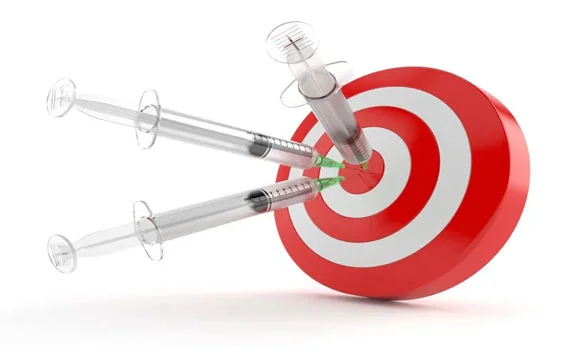
Targeted Therapy
What is targeted therapy?
If we use the analogy of pesticides: empiric therapy would be "Raid" while targeted therapy is the "Roach Hotel." - Dr. David Gandara
A "smart" bomb versus a "cluster" bomb - Dr. Nevin Murray
With targeted therapy the specific mechanism of action of the drug results in an increase in its therapeutic index.
However, the advantages of the specificity and safety of the are offset by the smaller number of susceptible tumour types.
Increasing numbers of these innovative and expensive anti-cancer drugs may exceed the capacity of the public purse to pay for them.
There is a paradigm shift in the treatment of cancer.
Conventional cytotoxic drugs interact with DNA to prevent cell replication but are not specific to cancer cells.
The Need to Identify the Target
- Appropriate use of newly approved and expensive targeted therapies for cancer first depends on the pathologist identifying the target for treatment in the tumour sample
- Currently the two major classes of targeted therapy are the small molecule tyrosine kinase inhibitors (TKIs) and monoclonal antibodies (mAbs)
Targeted Therapy in Oncology
Goals
Identify agents that target tumor-specific molecules, thus sparing normal cells.
- Increased specificity leads to decreased toxicity
Identify ideal drug target
- Drives tumor growth
- Turns on key mechanisms of cancer progression
- Reversible by inhibition with agent
- Dispensable in normal cells
- Target measurable in tumor tissue
Targeted Therapy: The Future
- Modern biology has identified a host of new potential targets for cancer therapy
- Drugs interacting with these targets are available
- The benefit of these agents is dependant upon the criticality of the target. More than one target may need to be inhibited
- New agents may “tip the balance” when combined with chemotherapy, radiation


